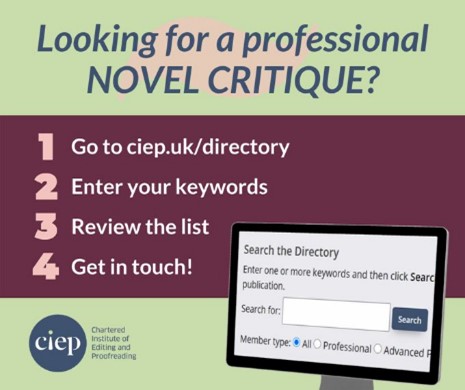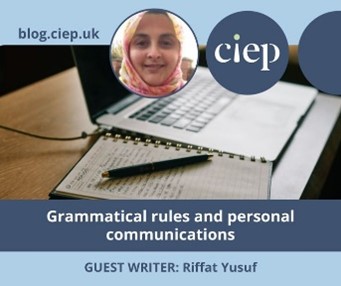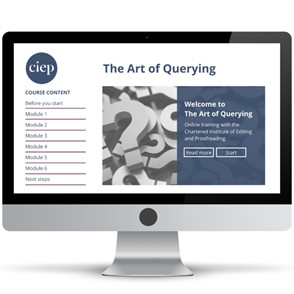In October and November 2021 we continued to use Facebook, LinkedIn and Twitter to raise awareness of the CIEP, promote our values and highlight our incredible and growing list of resources for members and non-members. Looking to the wider world, we posted articles that celebrated major events and explored the business of editing, the details of text, beautiful books, and weird and wonderful words.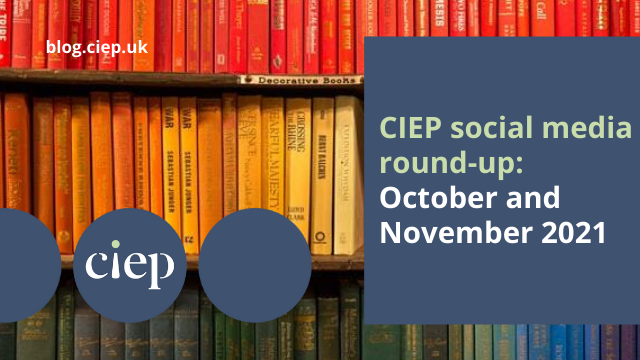
Supporting self-publishing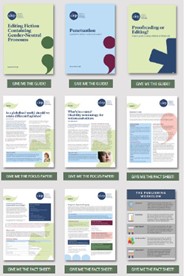
In October we were a session sponsor at the Alliance of Independent Authors’ online conference, #SelfPubCon21, where we sponsored CIEP member Sophie Playle’s session on crafting beautiful prose. We created a lovely bundle of free resources for delegates: three guides, two focus papers and four fact sheets.
Boosting specialist knowledge
We promoted a new guide, Editing Fiction Containing Gender-Neutral Pronouns, by Louise Harnby, which helps fiction editors consider the implications for narrative viewpoint when an author uses gender-neutral pronouns.
And we continue to raise awareness about the CIEP’s Directory of Editorial Services on a weekly basis. In October we promoted music and language editors and novel critiques. The aim is to demonstrate that the Directory is a source of professionals in whom clients can have confidence.
We also want to share our knowledge more widely, and we decided that not enough people know about Editorial Excellence and what incredible value there is inside this bi-monthly newsletter.
So all of our social media accounts now have sign-up details pinned to the top of the page, and when people join they get a welcome email pointing them to the newsletter archive so they don’t have to wait for the next edition.
Blog bonanza
Our blog posts went into overdrive in the wake of the CIEP conference, with 19 posts reviewing conference sessions, finishing with a first-time conference-goer’s experience in which Dayita Nereyeth summed up her journey through #CIEP2021 beautifully.
 We also promoted blog posts on a variety of topics: eco-anxiety, sentence case in titles, grammatical rules and personal communications, business-boosting tools, 21 tech tips and commissioning, editing and proofreading figures.
We also promoted blog posts on a variety of topics: eco-anxiety, sentence case in titles, grammatical rules and personal communications, business-boosting tools, 21 tech tips and commissioning, editing and proofreading figures.
Questions and more questions
November saw a new CIEP language quiz, number 11, for the competitive grammarians among us.
And we promoted the launch of our new course, The Art of Querying, across all of our platforms.
Marking world events
As usual, we marked events in the wider world with our curated content. We posted Oxford University Press’s celebration of ten people who made British history for Black History Month; on 1 October it was also International Coffee Day and we linked to a list of coffee quotes, courtesy of Goodreads; at October’s end it was of course Halloween, which we anticipated on 12 October with Merriam-Webster’s list of monsters with excellent names including Snallygaster and Hodag. Nearer the date we shared a spooky Halloween tale for writers by cartoonist Tom Gauld in which, after curses and death, the worst event was, in the words of the storyteller: ‘The book had a typo and the entire print run had to be pulped!’ One of our Facebook followers commented: ‘Pulped for one typo??? Those were the days.’ Quite right. Remember, folks, most books have the odd typo.
In November, COP26 in Glasgow was the main event, and we made sure we gave our followers enough environment-related reading material to accompany them through, from new words such as wish-cycling to the etymology of the word ‘world’. Brian Bilston published an ingenious poem, ‘Every day the planet burns a little more’, to be read downwards and then, for a more hopeful vision, back up again.
The business of editing
As ever we posted a good deal of content about being an editor or proofreader, starting with ‘The Ethics of Online Portfolios: How should editors showcase their skills and experience?’. In early November we looked at how to build a waiting list, and later in the month CIEP’s own business columnist, Sue Littleford, published a well-received blog on the ACES website about author querying, which included seven golden rules and a description of Sue’s own querying process. The article got a lot of love online, and for good reason.
Something else that got a lot of love was the term ‘polywork’, which describes a new working lifestyle of ‘pursuing multiple jobs to fulfill multiple interests’ as defined by fierceelectronics.com and recorded by Cambridge Dictionaries. One LinkedIn follower commented: ‘I’m definitely a polyworker: genealogy, editing, writing and a bit of designing brand books. I love it all so why choose only one?’
Textual healing
From the subjunctive to pronouns, capital letters to commas, as well as what happens when friends discover grammatical ‘errors’ in your novel, we also considered the details of text. One very popular article, ‘Writing by Seeing Only the Punctuation’, allowed its readers to paste into a web tool any piece of writing in order to view only its punctuation. Our followers called it ‘fascinating’ and ‘awesome’, and one commented: ‘These are works of art! I’d love one as a poster.’ That’s someone’s Christmas present sorted, right there.
Beautiful books
On 28 October it was a day for the enjoyment of books as we posted an article about the 15 most beautiful bookstores in the world as well as a scientific explanation for your urge to sniff old books. The author herself (@joodstew) thanked us on Twitter for the shout-out. Most welcome.
And then for those who have all the books but don’t have the time to read them, a new concept: an antilibrary, a research tool that ‘creates a humble relationship with knowledge’ because it reminds us of all the things we don’t yet know.
Weird and wonderful words
Something else we’ll bet you don’t yet know is the meaning of most of the words in Merriam-Webster’s Great Big List of Beautiful and Useless Words, Vol. 2 (yes, there has already been a first volume). With a subtitle of ‘They’re wonderful. They’re obscure. They’re often quite pointless’, this list includes ultracrepidarian, ‘giving opinions on matters beyond one’s knowledge’ (perhaps they need a humbling antilibrary), and spanghew, ‘to throw violently into the air; especially to throw (a frog) into the air from the end of a stick’. We hope to never have to use that particular word, ever. Poor frog.
And finally, as we’re getting into words-of-the-year season, a nod to The Cambridge Dictionary Word of the Year – wait for it … keep going … almost there – perseverance. We’ll allow Cambridge Dictionary to elaborate:
In 2021, people all over the world have had to show perseverance in the face of challenges and disruption to our lives from COVID-19 and other problems. Perseverance is almost always a positive word that expresses our admiration for people who keep going in difficult situations … You might find it encouraging to learn that we usually use perseverance to talk about an effort that is eventually successful.
We can only hope. From CIEP’s social media elves, wishing you a very happy festive season and a wonderful start to 2022.
Don’t miss a thing in editing and proofreading.
Follow us on Facebook, Twitter and LinkedIn.
 About the CIEP
About the CIEP
The Chartered Institute of Editing and Proofreading (CIEP) is a non-profit body promoting excellence in English language editing. We set and demonstrate editorial standards, and we are a community, training hub and support network for editorial professionals – the people who work to make text accurate, clear and fit for purpose.
Find out more about:
Photo credit: rainbow book shelves by Jason Leung on Unsplash.
Posted by Abi Saffrey, CIEP blog coordinator.
The views expressed here do not necessarily reflect those of the CIEP.


